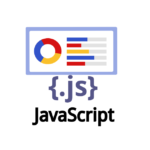Blockchain has the ability to change how business-to-business interactions are conducted. It is a potent technology that may be used to protect data, boost revenue, and simplify procedures while ensuring secure transactions that do not require third-party participation, such as banks and other organizations required for financial statement verification.
Professionals in the Electronics Manufacturing Industry can Gain a Lot by Blockchain Integration:
Data and Transaction Security
Due to the distinctive method that blockchain development services create and save data, it guarantees a secure supply chain. Each digital block in the chain-like structure of the digital ledger is connected to the one before and after it. Once information is entered into the ledger, it is challenging to alter since the data is maintained in a dependent chain. Due to the distributed ledger nature of blockchain, there is no single point of failure because there is no centralised source of data.
Additionally, each participant may be given a private key, and each transaction is associated with a particular digital signature. Cryptographic keys are used to secure each record. The signature key will be withdrawn if data in the chain is altered, making the changes immediately visible to all participants.
Transparency
Enterprise blockchain consulting solutions provide transparency and instant access to the assets of members of the distributed ledger. The blockchain model encourages participants to transact in an honest and straightforward manner. Members are able to trace goods along the supply chain because of this transparency. Transactional errors are virtually nonexistent, and any problems like counterfeit items may be identified and dealt with right away.
Real-Time Updates
New transactions are instantly posted to all ledgers since every ledger on the blockchain is similar. The ledgers are updated simultaneously for all participants, and each link in the chain has access to the same data.
Less Transactional Costs
Blockchain ledgers do not require external parties to oversee transactions or keep separate records, which can save transaction costs. Employees are not required to aggregate, modify, or distribute data, do reconciliations, or carry out settlement after trades are closed. All transactions are recorded and validated on the ledger, making auditing and compliance chores easy.
Fast Transactions
Blockchain was criticized when it first came out for its sluggish transaction speeds and high computational requirements. With only 300 nodes, a blockchain created by the University of Sydney was able to surpass Visa’s transaction speed thanks to significant technological developments since 2009. This blockchain was able to handle 660,000 transactions per second.
Final Synopsis
Blockchain technology is transforming internal business procedures in the electronics industry by enabling quicker, less expensive transactions and a traceable, untouchable supply chain.
Blockchain technology is on the verge of completely altering the digital components of business. The consumer electronics sector is among the biggest and most varied on a global scale. Most of the problems mentioned in this study can be significantly remedied by using blockchain technology. This research attempts to identify particular solutions for the worldwide dispersed consumer electronics industry despite the abundance of literature on the applications of this technology. The difficulties with advertising, the supply chain, origin, food safety, etc. are all addressed in the answers.
Author Bio
My name is Emma Perez, and I have a keen interest in the field of writing. I have written a couple of articles on various gemstones, fashion and would love to express my opinion on more such stones. Hope it has maximized your knowledge of gemstone jewelry and satisfied your quest to buy moldavite jewelry from an authentic place. We believe in quality and offer the same in our information and products.










